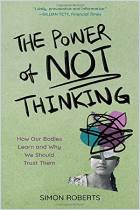
A Revolution in Our Sense of Self
In a radical reassessment of how the mind works, a leading behavioural scientist argues the idea of a deep inner life is an illusion. This is cause for celebration, he says, not despair.
Recommendation
Why do people behave the way they do? You can ask them but they will likely not be able to tell you. According to Nick Chater, a behavioral psychologist at Warwick Business School, interpreting people’s dreams or putting them through hours of psychotherapy won’t give you any clues about people’s deep-seated motivations either. Why? It's because the human brain has no depth. In this opinion piece for The Guardian Chater, author of The Mind is Flat, gives an overview of his thesis on human motivation. Even if you end up disagreeing with Chater’s stance, getAbstract believes that his argument will challenge your thinking on one of psychology’s most enduring mysteries.
Summary
About the Author
Nick Chater is professor of behavioral science at Warwick Business School and the author of The Mind Is Flat.
















Comment on this summary or 开始讨论